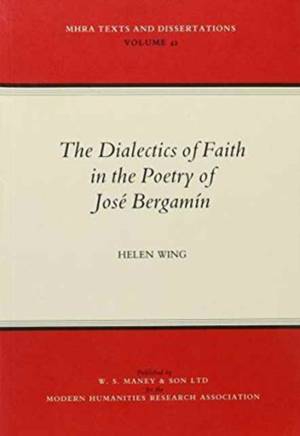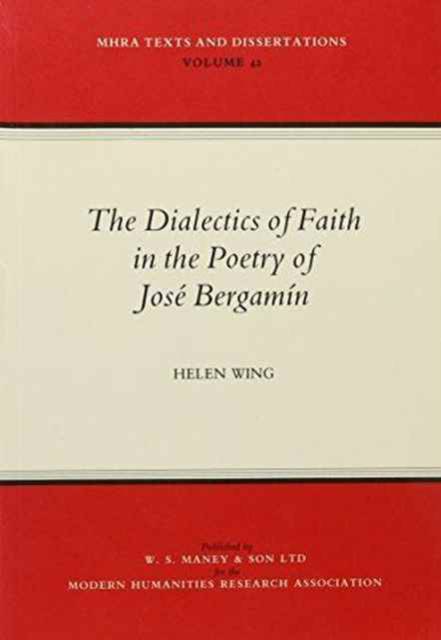
- Afhalen na 1 uur in een winkel met voorraad
- Gratis thuislevering in België vanaf € 30
- Ruim aanbod met 7 miljoen producten
- Afhalen na 1 uur in een winkel met voorraad
- Gratis thuislevering in België vanaf € 30
- Ruim aanbod met 7 miljoen producten
Zoeken
Omschrijving
This study assesses Bergamin's poetry in the light of two premises: first, that the notion of faith is the prime mover in Bergamin's thought and poetry, and, second, that language, being material, militates against the transcendent potential of faith. From the tension between the known (the material) and the unknown (the transcendent) comes the dialectic of faith and doubt which Bergamin enacts in his poetry. Inspired by the work of Cixous and Kristeva, this analysis attempts to site Bergamin's imagination as an exilic one, as one which is estranged from God. For Bergamin, language has created objectification from the material world, and thus he suggests that we perceive ourselves as separate from others and separate from God. His poetry is concerned with the radical instability of modern experience, and Bergamin seeks to use it as a form of reconciliation. He strives for a faith in the feminine, espousing doubt, fluidity and fusion as against certainty and the dictates of reason. For him, this faith, or reconciliation, is the opposite of exile.
Specificaties
Betrokkenen
- Auteur(s):
- Uitgeverij:
Inhoud
- Aantal bladzijden:
- 154
- Taal:
- Engels
- Reeks:
- Reeksnummer:
- nr. 42
Eigenschappen
- Productcode (EAN):
- 9780901286581
- Verschijningsdatum:
- 1/07/1995
- Uitvoering:
- Paperback
- Formaat:
- Trade paperback (VS)

Alleen bij Standaard Boekhandel
+ 75 punten op je klantenkaart van Standaard Boekhandel
Beoordelingen
We publiceren alleen reviews die voldoen aan de voorwaarden voor reviews. Bekijk onze voorwaarden voor reviews.











